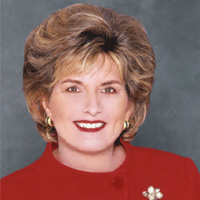
October 2003
Build A Championship Team!
It's the end of October and if you're a team sports fan — you're in heaven with so many choices — the World Series, NCAA football, the NFL. Whether you enjoy playing or watching sports there is no denying we can learn a lot from watching these championship teams.
Some make the assumption that just like sports teams, people naturally work productively together in business teams. Not true. Our culture, from school age on, supports the idea of the individual achiever: the hero, the star. A team is a collection of individuals; but it is the dynamic of how these individuals align their respective goals and responsibilities, whether they commit themselves to collaborative accountability and how openly they provide each other with feedback and coaching that separates truly successful teams from mediocre teams.
EquiPro has worked in over 40 countries and in multiple industries with all sorts of teams: executive teams, cross-functional teams, cross-cultural teams, strategic alliance teams, virtual teams. Whatever the product or service, whatever the industry, the need for collaboration and teamwork is greater than ever before. If teamwork is the ultimate competitive advantage why is it such a difficult and elusive achievement in most organizations? Why is it so hard to get people all moving in the same direction? Why can't people stop competing long enough to start collaborating? Why are companies not making more of an investment in helping teams and team leaders maximize their productivity and results?
One thing that could make successful business teams similar to championship sports teams would be to help both new and experienced teams practice. Derek Jeter of the New York Yankees gets paid to practice. Our eight-year old daughter, Carylyn, is having her first team experience — she's joined a swim team — and is now forced to forego play dates for practice. But for us in business, everyday is game day!
Wouldn't it be more productive for start-up teams to take 1-2 days to go off together to develop shared goals, become clear on what role they each play and to figure out the rules of their “game”? Periodically teams should also take a “time-out” and ask themselves: How are we doing? What's our scoreboard showing? Do we need some coaching? How are we doing on our team fundamentals — communications, meeting management, decision-making? That would be practicing!
We're hoping that as Carylyn grows up she'll have the opportunity to both learn from and have fun on all different kinds of winning and losing teams. We hope she will learn that no matter what you do in life… it takes a team!
THE FIVE DYSFUNCTIONS OF A TEAM
by Patrick Lencioni
Having written a book on teams (World Class Teams, John Wiley), I am always on the lookout for something new to learn about one of my favorite subjects. And recently I found it in a book that, through a corporate fable, reveals the lessons about why teams — even the best ones — often struggle.
In an entertaining quick read, Lencioni tells the story of a new executive team leader who has inherited not only an ineffective team, but a company on the verge of collapsing. Many of the situations this new leader faces: political in-fighting, lack of trust, lack of accountability for team results, fear of conflict, all appear insurmountable. But over a period of weeks the leader exposes them to the team, and together they work to overcome these issues. At the end of the story, the main points are summarized and clearly written suggestions (and exercises) are offered.
Based on EquiPro's experience in working with a wide variety of teams over the years the story is realistic and believable. It also demonstrates how important it is for team leaders to decide how personally committed they are to doing whatever it takes to turn their team's performance around.
Actions for Results: Tips & Tools for World Class Teams
Develop A Game Plan: What's the mission of your team? What position will each team member play on the field? How will you keep score?
Manage The Fans: Who are your customers/clients and how will you get their applause? How will you build a relationship with them?
Play By the Rules: How will your team communicate? How will you make decisions? What is a 'foul ball'?
Practice, Practice, Practice: Start your team with a kick-off; take periodic time outs to get feedback from the team and the fans on “How are we doing”?
Build A Team of Stars Who Expect to Win: Each team member should be selected based on their ability and passion to play on your team. Once this star power is selected then let them shine together.
“Frequently, the difference between success and failure is the resolve to stick to your plan long enough to win.”
David Cottrell
Ask or Tell We want to hear from you- whether it is a question or a suggestion! Are you or your organization facing a particular performance challenge? Leadership issues? Turf wars instead of teamwork? Struggling with a major change? Expanding globally, but not collaborating across borders? Frustrated with lack of business growth? |







